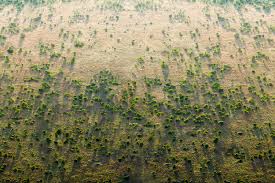United Nations aid agencies and non-governmental organisations are concerned about the rapidly worsening humanitarian crisis in the Sahel.
By Edouard Touré
The United Nations (UN) have estimated that 29 million people in the Sahel are in need of humanitarian assistance and protection, five million more than last year.
These people live in six countries, namely Burkina Faso, northern Cameroon, Chad, Mali, Niger and north-eastern Nigeria.
“As the Sahel crisis drags on, an entire generation of children is at risk. With security incidents continuing to soar, the impact on children is devastating. The number of violent attacks has increased eightfold in the central Sahel and threefold in the Lake Chad basin,” UNICEF Regional Director, Marie-Pierre Poirier said.
Quoted in a press release, she said that violence and insecurity are severely disrupting basic social services: nearly 5,000 schools are closed or not operational, jeopardizing the future of hundreds of thousands of children, and 1.6 million children are at risk of suffering from severe acute malnutrition.
“To meet the immediate needs of the population while laying the foundations for sustainable development, we need to change the paradigm and work with the governments and people of the Sahel,” Ms. Poirier said.
The Country Director of the Norwegian Refugee Council in Mali, Hassane Hamadou said that the growing needs in the Sahel are exacerbated by an ever-shrinking humanitarian space, which leads to a negative spiral in the overall response.
“Growing insecurity and the lack of distinction between military and humanitarian responses pose a real danger to people and operations. Our local acceptance is increasingly challenged and many vulnerable children may never know peace, a full school year and a day without hunger,” said Hamadou.
This makes Chris Nikoi, Regional Director of the World Food Programme (WFP) in West Africa, say that in this sub-region, hunger has increased by almost a third, reaching its highest level in almost ten years.
He said the areas of greatest concern are the central Sahel and the Lake Chad Basin, where escalating conflict is fuelling hunger.
TE/lb/as/APA


